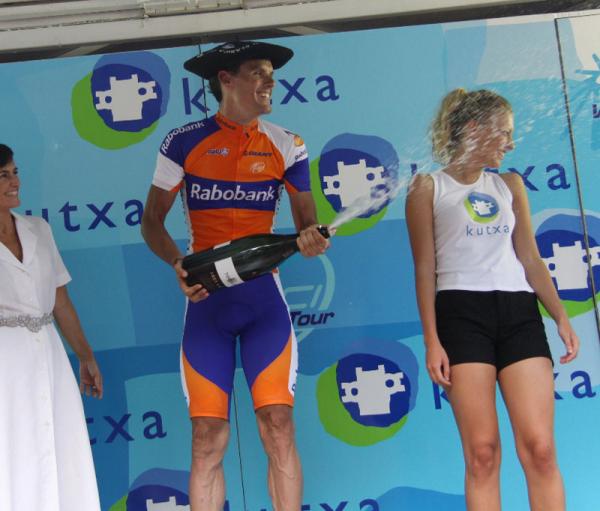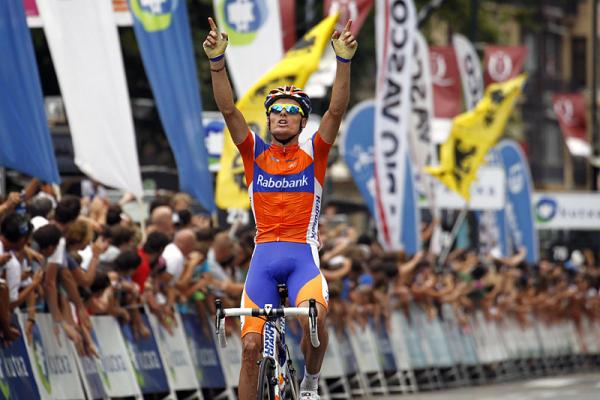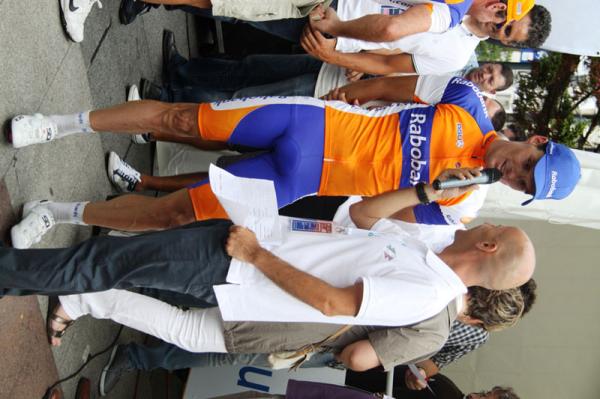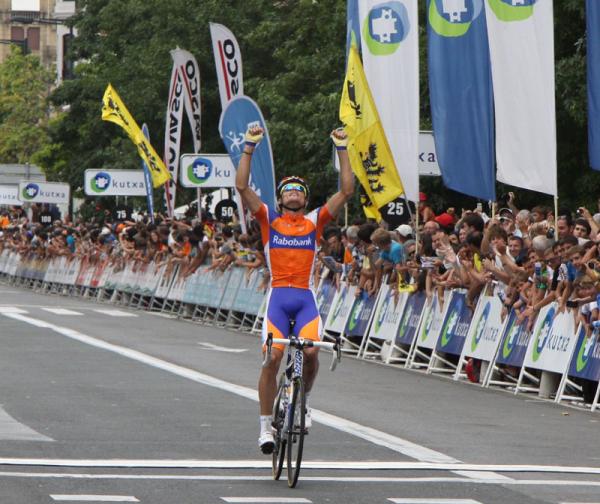Luis Leon Sanchez puts Olympic nightmare behind him
Spaniard takes Second Clásica victory in three years




The last time most cycling fans, not to mention most of Spain, saw Luis León Sánchez prior to this Tuesday's win in the Clásica San Sebastian was when his chain broke at the very start of the Olympic time trial, effectively wiping out any chance of success. But today, the 28-year-old Rabobank rider was back on their TV screens for the right reasons, as Sánchez put an Olympic nightmare behind him with his second victory in three years in Spain's top one-day Classic.
Unlike in 2010, where he outsprinted Alexandre Vinokourov and Carlos Sastre from a three-man break to win on the Boulevard Donostiarra in central San Sebastian, this time Sánchez went for it alone, just like he did in his stage win in the 2012 Tour de France, with a late, lone attack.
For Sanchez, today's win represented a return to his best form after an Olympic Games where the Spaniard and compatriot Alejandro Valverde were never on top of their game in the road race despite making it into the mini-peloton that sheered off the front of the pack the last time over Box Hill. As for the Olympic time trial five days later, that broken chain and a series of other incidents wrecked any chance of setting the score straight.
The Clásica, though, was a different story altogether, as Sanchez said. "I can't forget what happened in the Games that easily, they only come round once every four years. It was going round and round in my head all the time for a quite few days afterwards."
"Neither me nor Alejandro were up there at the right moment in London, we tried to make the race and get on the attack in the closing kilometres, but Alexandre [Vinokourov, road-race winner] was stronger and cleverer. And as for that time trial, well saying that wasn't a good day is putting it mildly."
"I'm really very happy to win here, pleased to win in front of the Basque fans because I raced a lot here when I was a U23 rider, and on top of that, they're really big cycling fans. It was also really important to do something after all that bad luck I had in the Olympic Games."
As Sanchez also pointed out, his and the team's other victories in the last week have also been important given Rabobank's very difficult Tour, where the team finished with just four riders.
The latest race content, interviews, features, reviews and expert buying guides, direct to your inbox!
"[Lars] Boom won in Eneco, [Michael] Matthews won a stage of the Tour of Utah and now we've got this victory too. We've shown we're a great team."
As for the Clásica itself, Sanchez said that the Arkale climb, less than 20 kilometres from the finish, had been a key moment, "After Purito [Joaquim Rodríguez - Katusha] attacked about 10 or 12 riders went with him, but I wasn't up there. Then as the race was regrouping I took advantage of the confusion and then I went for it."
"Luis had great form for months and the wins keep on coming," Rabobank sports director Adri Van Houwelingen told Cyclingnews. "He never had over 12 seconds in that last break but even over nine kilometres, it was enough - that shows he was really strong."
"The original aim was to reach the foot of the Jaizkebel [for a second time] with as many riders as possible in the front group and we had five [Robert Gesink, Sanchez, Bauke Mollema, Laurens Ten Dam, Paul Martens] there and we hadn't made a move, we were still ready to go for it."
"Then we had three riders left, and then after the Jaizkebel Luis went for it at exactly the right moment. But although we knew that the [second category climb of] Arkale would be more important than the Jaizkebel, that was Luis' decision to attack there."
"We had a lot of bad luck in the Tour although we had one great stage win too with Luis. But now thanks to this and the other wins we'll go for the Vuelta feeling really motivated."
Alasdair Fotheringham has been reporting on cycling since 1991. He has covered every Tour de France since 1992 bar one, as well as numerous other bike races of all shapes and sizes, ranging from the Olympic Games in 2008 to the now sadly defunct Subida a Urkiola hill climb in Spain. As well as working for Cyclingnews, he has also written for The Independent, The Guardian, ProCycling, The Express and Reuters.
